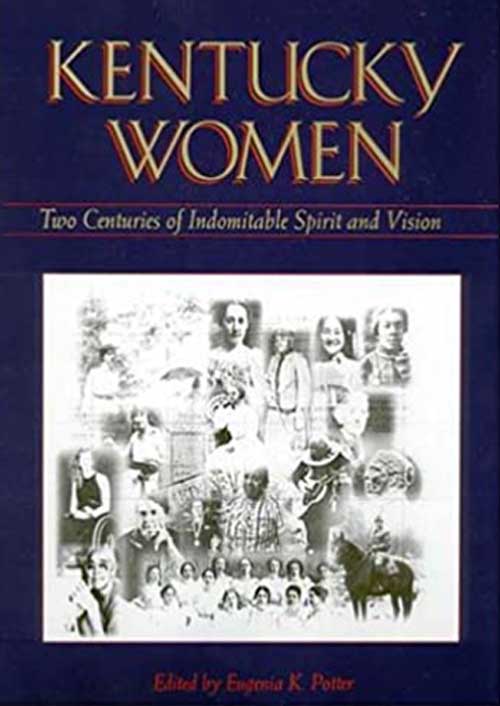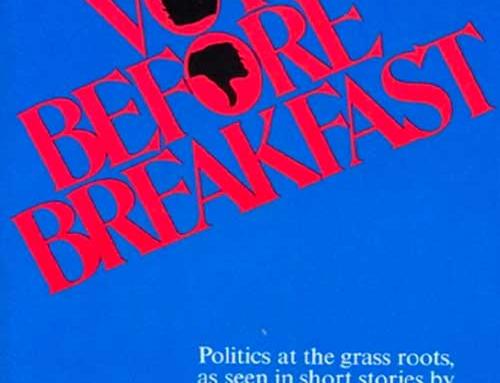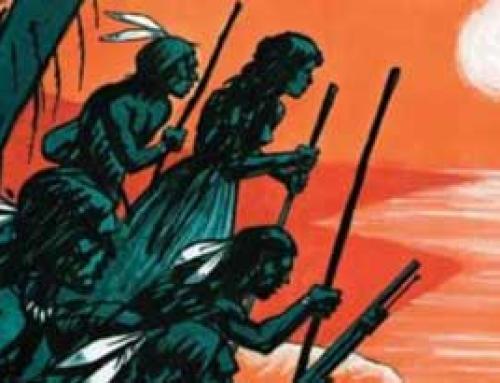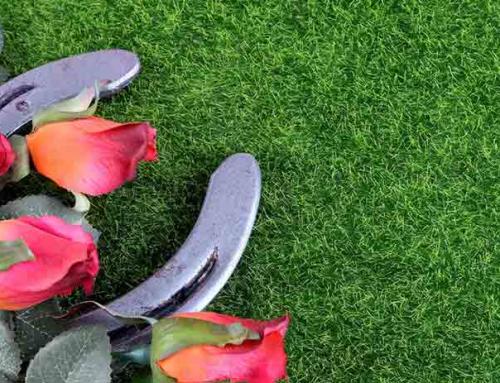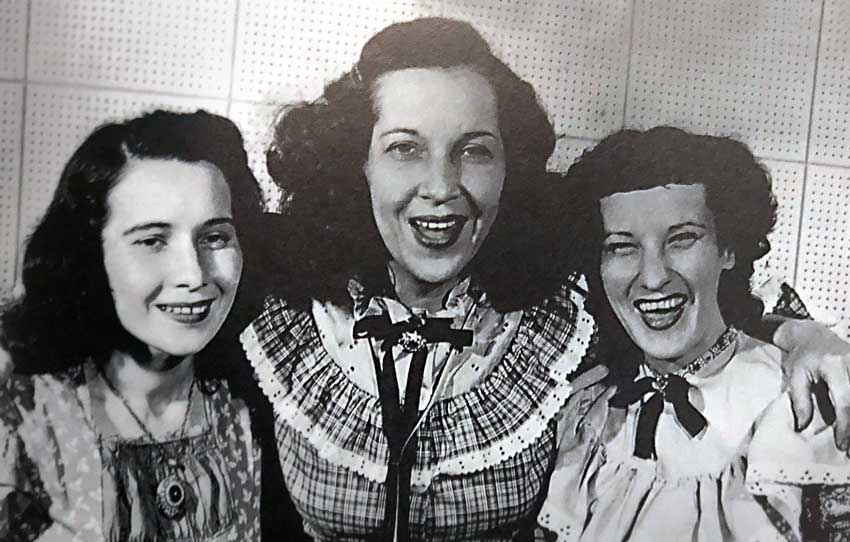
Lily May, center, of Coon Creek Girls, c. 1950.
Music has always been an essential part of the lives of Appalachian people, who valued their banjos, fiddles, and mandolins almost as much as the family firearms. From the early settlement of eastern Kentucky until the 1920s, musicians played primarily for their own amusement or to entertain family and friends at home or at local events. However, by the 1920s, the music of Appalachia intersected with a new technology – radio, and talent scouts from major radio stations in Chicago, Cincinnati, and other large cities began searching the Kentucky hills and hollows for talented fiddlers and singers.
Numerous Kentucky musicians rose to prominence in the 1920s and 1930s. Southeastern Kentucky produced Buell Kazee, Asa Martin, David “Stringbean” Akeman, the Amburgey Sisters from the hamlet of Neon in Letcher County, Bradley Kincaid, “The Kentucky Mountain Boy,” Red Foley, and Lily May Ledford.
Lily May Ledford was born in the Red River Gorge area of Powell County on March 17, 1917. Her tenant farmer parents, Daw and Stella Ledford, were gifted musicians. During the 1930s, they formed a family band, the Red River Ramblers, and Lily May, a precocious talent, played the fiddle and banjo. In 1936, the band auditioned for a talent scout from WLS in Chicago, and Lily May was chosen to come to Chicago and perform on the WLS “Barn Dance.” That same year, she signed a five-year personal management contract with John Lair – an arrangement that pleased her mother who had heard frightening stories of young girls going to Chicago and other big cities who were “captured and sold into white slavery.”
The next year, Lair assembled an all-female band that showcased Lily May’s clawhammer banjo sound. “Since we had not been named,” remembered Lily May, “we got the bright idea of calling ourselves the Wildwood Flowers.” Lair suggested a more country name, the Coon Creek Girls, so people would know the type of music they played. The band also included sisters Rose on the guitar, Daisy on the bass fiddle, and Violet on the mandolin. Later, sister Minnie, known by the stage name Black-eyed Susie, joined the band which was featured on the “Renfro Valley Barn Dance” radio program for eighteen years.
By 1939, the group had become so popular that Eleanor Roosevelt invited them to come to the nation’s capital and perform for the King and Queen of England.
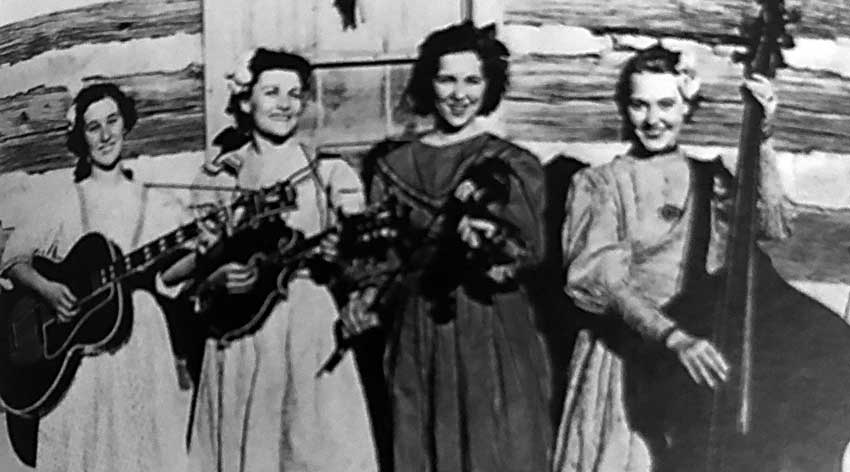
Lily May on the fiddle with Coon Creek Girls, c. 1938.
In the early 1980s, when I was employed at Morehead State University, I hired Lily May Ledford to present a concert, and this is the story she told about her appearance at the White House to entertain King George VI and Queen Elizabeth. “Our spirits rose as we realized that the Queen and Mrs. Roosevelt were smiling, as well as Mr. Roosevelt; but the King, with rather a long-faced, dour, dead-pan look worried me a little. Then as I glanced down, I caught him patting his foot, ever so little, and I knew we had him.”
The original Renfro Valley Barn Dance was broadcast from the Cincinnati Music Hall. The next year, it moved to the Memorial Auditorium in Dayton, Ohio. Finally, on November 4, 1939, Lair was prepared to broadcast from Renfro Valley, Kentucky. The show from rural Kentucky was picked up by WHAS in Louisville and fed to the NBC network at the enormous power of 500,000 watts. According to the great music historian Chares Wolfe, it was heard throughout the South and Midwest where some farmers jokingly claimed, “they were picking up broadcasts on their milking machines and others insisted they were getting it on their barbed-wire fences.”
Lily May and the Coon Creek Girls continued to perform part time and raise their families until 1957, when Rosie and Lily May left the group and officially ended the Coon Creek Girls. She remained a popular national performer for another 20 years and died in 1985.
Lily May Ledford is one of 95 women profiled in “Kentucky Women: Two Centuries of Indomitable Spirit and Vision,” compiled and edited by Eugenia K. Potter. This book is available from the Jesse Stuart Foundation in Ashland. For more information, contact the JSF at 606.326.1667 or email jsf@jsfbooks.com.
By James M. Gifford
JSF CEO & Senior Editor


